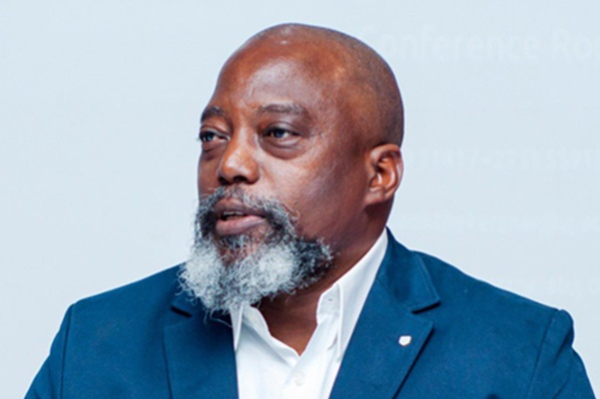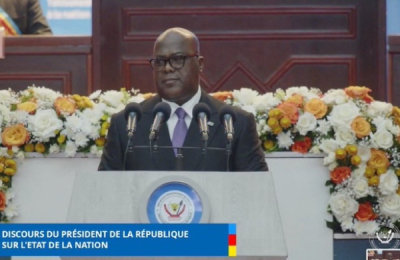On April 19, 2025, the Congolese government announced a series of decisive measures against former president Joseph Kabila Kabange: suspending his political party (PPRD), seizing his assets, and launching legal proceedings.
The Ministry of Justice accused Kabila of direct involvement in the aggression against the DRC by the Alliance du fleuve Congo (AFC)/M23 rebels, who are backed by Rwanda.
These actions follow reports—and confirmation by Interior Minister Jacquemain Shabani Lukoo—of Kabila’s arrival in Goma from Rwanda. Lukoo described it as “a deliberate choice to return to the country via a town under enemy control, which curiously guarantees his security.”
Back in February, at the Munich Security Conference, President Félix Tshisekedi had already accused Kabila of being “the real sponsor” of the eastern rebellion. His presence in Goma now appears to authorities as further evidence of this claim.
A Complicated Matter
The announced seizure of Joseph Kabila’s assets—and those of “his alleged accomplices”—raises a thorny issue: how to clearly identify which assets to freeze? At the core lies the question of beneficial ownership—uncovering the real beneficiaries behind complex asset structures.
For years, Kabila’s supposed fortune has been under scrutiny. A 2016 Bloomberg investigation revealed a network of over 70 companies tied to his family, spanning sectors in the DRC and abroad, including the US, Panama, Tanzania, and the Pacific tax haven Niue.
In 2021, the Congo Hold-up probe, led by international journalists and NGOs, exposed alleged embezzlement of $138 million through a local bank benefiting the Kabila clan. Documents suggest some Chinese owners of major copper and cobalt mines funneled money to Kabila relatives via this bank.
Back in 2017, the Congo Study Group reported that the Kabila family controlled about 80 companies, 71,000 hectares of farmland, and multiple mining licenses.
Kabila’s circle has consistently denied these claims, calling them “delatory maneuvers” and “unjustified assaults,” particularly after the Congo Hold-up revelations.
Tracking Beneficial Ownership: Progress and Challenges in the DRC
Beneficial ownership identifies the true individuals who control companies beyond formal nominee structures.
Groups like the Tax Justice Network push for public beneficial ownership registers, backed by organizations such as the FACTI Panel and the Economic Commission for Africa.
The DRC has made strides with Law n°22/068 of December 27, 2022, mandating the identification of beneficial owners. Yet, according to the 2022 EITI report, significant hurdles remain. The ministerial decree to establish a national register is still pending. Of 91 extractive firms reporting, only 47 disclosed beneficial ownership—and often incompletely.
The Action Group against Money Laundering (GABAC), in its latest reinforced monitoring report, flags a lack of clear mechanisms ensuring authorities’ access to this data. It highlights “significant shortcomings” in identifying legal entities, underscoring that much work lies ahead.
Big Stakes
The issue of beneficial ownership extends far beyond the Kabila case, touching on deeper systemic governance issues. In a resource-rich region plagued by misappropriation concerns, transparency about true asset owners is crucial for development.
Rising tensions between Félix Tshisekedi and Joseph Kabila give this debate a strong political edge. However, in the long run, only robust legal tools and reliable registers will address illicit enrichment, corruption, and hidden financing effectively.
This article was initially published in French by Georges Auréole Bamba
Edited in English by Ola Schad Akinocho










